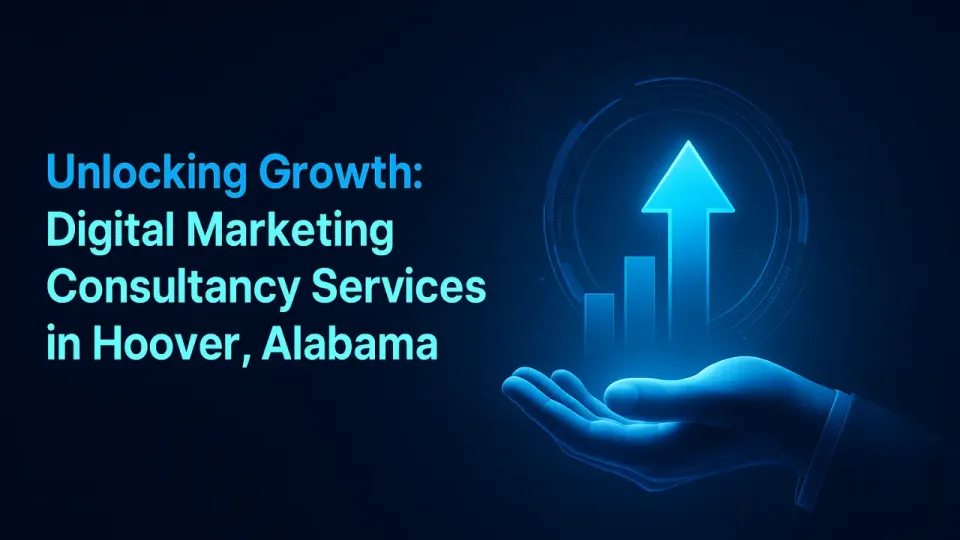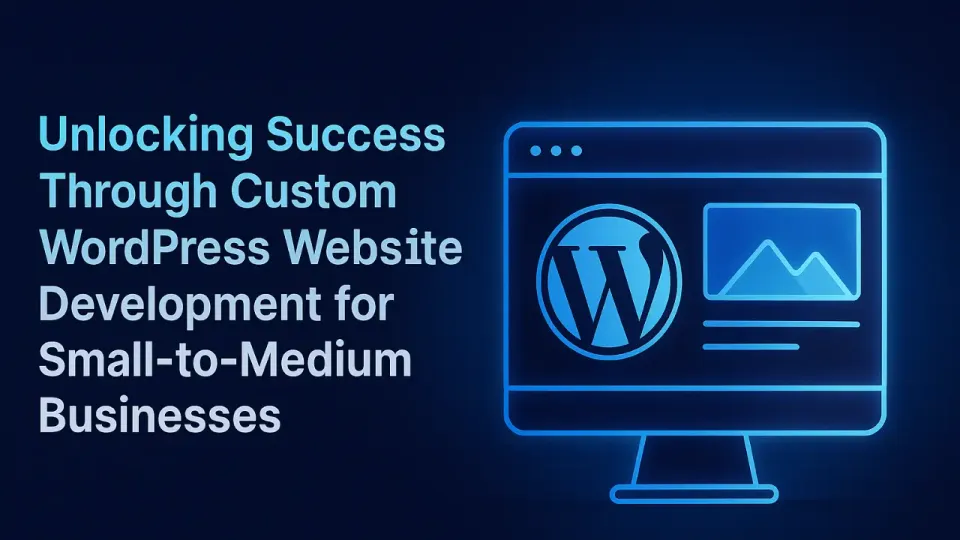How AI is Driving Unprecedented Growth for Small Businesses

Are you a small business owner looking for ways to stay competitive and grow in today’s fast-paced business world? One of the most powerful tools making this possible is Artificial Intelligence (AI). While AI might seem like something only big corporations use, it’s actually becoming a game-changer for small businesses too. From automating everyday tasks to improving customer experiences and helping with smarter marketing strategies, AI offers opportunities for growth that were once out of reach. In this article, we’ll explore how AI is driving small business success and why now is the perfect time to consider embracing it for your own company.

Understanding AI for Small Businesses
What is AI? AI, or Artificial Intelligence, might sound complicated, but it's actually a simple concept. AI refers to computer systems that can learn, think, and solve problems like humans do. These systems analyze data, recognize patterns, and make decisions—all without constant human input. For small businesses, this means AI can handle repetitive tasks, improve efficiency, and help make smarter business decisions.
Why Small Businesses Need AI You might be wondering, “Why should I care about AI?” The truth is, AI is no longer just for big companies with massive budgets. Today, affordable AI tools are designed specifically for small businesses, helping you do more with less. Here’s why AI can make a real difference:
- Time Savings: AI can automate tasks like customer service, scheduling, and invoicing, freeing up time for you to focus on growing your business.
- Better Customer Engagement: AI-powered tools help you understand your customers better, allowing you to create personalized experiences that keep them coming back.
- Cost Efficiency: With AI handling routine tasks, you can reduce operational costs and improve productivity without hiring extra staff.
By understanding how AI works and recognizing its benefits, you’re opening the door to new opportunities for growth and success in your business.

Key Areas Where AI Boosts Small Business Growth
AI is transforming how small businesses operate, making it easier for them to scale and improve efficiency. From automating routine tasks to enhancing customer experience, AI is no longer a luxury reserved for large corporations. Here are some key areas where AI is driving significant growth for small businesses:
1. Automation of Repetitive Tasks One of the most immediate and impactful ways AI can support small businesses is by automating repetitive tasks. Tasks like responding to common customer inquiries, managing inventory, or scheduling appointments can be time-consuming but essential. AI tools, such as chatbots and virtual assistants, can handle these tasks with speed and accuracy, reducing the workload for you and your employees.
For example, AI-powered chatbots can answer frequently asked questions around the clock, providing quick responses to customers without needing a dedicated customer service representative. Similarly, AI systems can manage your inventory by automatically tracking stock levels, reordering products when necessary, and ensuring that your shelves are always full. This level of automation not only saves time but also minimizes errors, helping your business run more smoothly.
2. Enhanced Marketing Strategies Marketing is a critical component of any business’s growth strategy, and AI can supercharge your efforts. AI-driven tools help small businesses target the right audience, personalize marketing messages, and optimize campaigns in ways that were once only available to large companies.
AI tools analyze customer data and behavior to help you understand your audience better. With this insight, you can create personalized marketing campaigns that resonate with specific segments of your audience, increasing engagement and conversion rates. For example, AI can predict which products a customer is likely to buy based on their previous purchases, allowing you to tailor your marketing efforts more effectively.
Additionally, AI tools like automated email marketing systems can send personalized messages to customers at the perfect time, improving the chances of conversion. By using AI to optimize your marketing strategies, you can reach more customers with less effort and expense.
3. Improving Customer Experience Providing excellent customer service is essential for small businesses, and AI can help you enhance the customer experience without breaking the bank. AI-powered tools can provide instant support, personalized recommendations, and seamless interactions that make your customers feel valued and heard.
For instance, AI-driven recommendation engines analyze customer preferences and purchasing behavior to suggest products that match their interests. This level of personalization creates a more engaging and satisfying shopping experience for your customers. AI can also power virtual assistants that guide customers through your website, helping them find the information or products they need faster.
Furthermore, AI chatbots can handle customer inquiries in real-time, providing quick resolutions to common issues, even outside of business hours. This not only improves customer satisfaction but also frees up your team to focus on more complex tasks that require a human touch.
4. Streamlining Operations and Processes AI doesn’t just improve the front-end of your business; it can also enhance the back-end operations. Small businesses often struggle with managing multiple processes at once, from payroll to supply chain management. AI-powered tools can streamline these operations, helping you maintain control over your business without overwhelming you with administrative tasks.
For example, AI tools can analyze your financial data to identify trends, flag potential issues, and make recommendations for improving cash flow. In the supply chain, AI can predict demand patterns, optimize delivery routes, and help you avoid stockouts or overstocking. This not only reduces operational costs but also ensures that your business runs efficiently.
5. Data-Driven Decision Making One of the most powerful advantages of AI is its ability to turn data into actionable insights. AI can analyze large volumes of data quickly, giving small business owners the ability to make informed decisions based on real-time information.
Whether it’s sales data, customer feedback, or market trends, AI helps you identify patterns and trends that might not be immediately visible. This allows you to make strategic decisions with confidence, whether it’s adjusting your pricing strategy, expanding your product line, or entering a new market.

Success Stories of Small Businesses Using AI
While the idea of incorporating AI into a small business might feel overwhelming, many small businesses are already leveraging AI to boost growth and streamline operations. Let’s look at a few real-world success stories that highlight how AI can transform small businesses.
1. AI-Driven Customer Service Transformation Company: Local Retailer (e-commerce focus)
A small online retailer specializing in handmade crafts was struggling to keep up with customer inquiries as their business began to grow. With limited staff, they often found themselves unable to respond to customer questions promptly, leading to dissatisfaction and lost sales.
Solution: The retailer integrated an AI-powered chatbot into their website to handle routine customer queries such as order status, shipping details, and product information. The chatbot could respond instantly to common questions, freeing up the human team to focus on more complex inquiries.
Result: Within the first month, the business saw a 40% reduction in customer service response time, a significant increase in customer satisfaction, and a 25% boost in online sales. The AI chatbot handled hundreds of routine queries per day, which not only saved the team hours of work but also kept customers engaged and informed in real-time.
2. Personalized Marketing Boosts Customer Retention Company: Neighborhood Coffee Shop
A small, family-owned coffee shop was facing tough competition from larger coffee chains. They wanted to create a more personalized experience for their customers to encourage loyalty and repeat business.
Solution: The coffee shop used an AI-driven marketing tool that analyzed customer purchase patterns to send personalized promotions based on individual preferences. Regular customers received targeted emails with discounts on their favorite drinks, reminders about loyalty points, and suggestions for new products based on their previous orders.
Result: The coffee shop saw a 20% increase in customer retention within three months. Customers appreciated the personalized attention, and the loyalty program became much more effective. Not only did this strategy help keep existing customers coming back, but it also attracted new customers through word-of-mouth.
3. AI-Powered Inventory Management Saves Costs Company: Small Clothing Boutique
A small clothing boutique was struggling with inventory management. They often found themselves either overstocked on certain items or out of stock on popular items, both of which were hurting their bottom line.
Solution: The boutique adopted an AI-powered inventory management system that tracked sales data and used predictive analytics to forecast demand. The system automatically adjusted orders based on sales trends, ensuring that the boutique always had the right amount of stock on hand.
Result: The boutique reduced excess inventory by 30% and minimized out-of-stock incidents by 50%. This led to lower storage costs, increased sales, and improved customer satisfaction, as customers could now find the items they wanted more reliably.
4. Enhanced Social Media Engagement Using AI Company: Independent Marketing Consultant
A solo marketing consultant wanted to increase their social media presence and grow their client base but found it difficult to consistently create and manage engaging content across multiple platforms.
Solution: They began using an AI-powered social media tool that automatically generated and scheduled content tailored to their audience. The tool analyzed trends, customer behavior, and engagement metrics to create posts that resonated with followers, while also scheduling the content at optimal times for maximum reach.
Result: The consultant’s social media engagement increased by 35%, and they were able to attract new clients through improved visibility. By automating the content creation and scheduling process, they saved hours of work each week, allowing them to focus on expanding their client services.

Overcoming Challenges to AI Adoption
While the benefits of AI for small businesses are clear, adopting these technologies can still feel intimidating for many business owners. Concerns about cost, complexity, and the learning curve often prevent small businesses from fully embracing AI. However, with the right approach, these challenges can be overcome, allowing even the smallest companies to reap the rewards of AI-driven growth.
1. Cost and Investment One of the most common misconceptions about AI is that it’s too expensive for small businesses. Many business owners assume that AI tools are only accessible to large companies with massive budgets. However, this isn’t the case anymore.
Solution: Affordable and scalable AI solutions are now available, designed specifically for small businesses. For example, there are AI-powered chatbots, inventory management systems, and marketing tools that require minimal upfront investment and offer flexible pricing plans based on your business size and needs. Many tools even offer free trials or low-cost entry points, making it easier to test out AI solutions before fully committing.
Example: A small e-commerce shop could start by integrating a basic AI chatbot for customer service, which may only cost a fraction of hiring additional staff. Over time, as the business grows and profits increase, the company can scale up its AI tools to handle more complex tasks, proving that AI investment doesn’t have to break the bank.
2. Skills and Learning Curve Another common challenge is the perception that AI requires advanced technical knowledge to implement and manage. Small business owners, who are often juggling multiple responsibilities, may worry that AI will be too difficult to integrate into their operations.
Solution: Many AI tools today are designed to be user-friendly, requiring little to no technical expertise. These solutions often come with intuitive interfaces, easy-to-follow guides, and customer support to help with the setup. Additionally, some tools operate in the background, automating processes without requiring constant monitoring or adjustment.
Example: AI marketing tools, for instance, offer pre-built templates and automation workflows that make it simple for business owners to run targeted campaigns without needing in-depth knowledge of data science or programming. In most cases, these tools handle the complex AI work behind the scenes, allowing the user to focus on running their business.
3. Integration with Existing Systems Small businesses often have established processes and systems in place. The idea of integrating AI tools without disrupting daily operations can be a significant concern. Business owners may worry that adopting AI will require a complete overhaul of their current workflows.
Solution: Many AI solutions are designed to integrate seamlessly with the tools and systems you’re already using. Whether it’s connecting to your existing CRM, e-commerce platform, or marketing software, AI tools can often be plugged in with minimal disruption to your business.
Example: For a small retailer using an online shopping platform like Shopify or WooCommerce, there are AI plugins that can easily be added to enhance customer service or optimize inventory management. These tools work alongside the systems you already use, ensuring a smooth transition to AI-powered processes.
4. Data Security and Privacy Concerns As AI becomes more integrated into business operations, concerns about data privacy and security naturally arise. Small businesses may worry that using AI tools could put their sensitive customer or business data at risk.
Solution: Reputable AI providers prioritize data security, offering encryption, secure data storage, and compliance with data protection regulations such as GDPR. It’s important for small businesses to choose AI tools from trusted vendors and to ensure that they have strong security measures in place. Many AI solutions also offer customizable privacy settings, allowing businesses to control how data is used and stored.
Example: A small business using an AI-powered marketing tool can rest assured that their customer data is being handled securely, thanks to built-in security protocols and compliance with international standards. By doing their research and selecting tools that prioritize data protection, small businesses can mitigate potential risks.
12 Ways Small Businesses can use AI
How to Get Started with AI for Your Small Business
Taking the first step toward integrating AI into your small business doesn’t have to be daunting. By following a strategic approach, you can seamlessly incorporate AI tools that align with your goals, improve your efficiency, and drive growth. Here’s how to get started:
1. Identify Your Business Needs
Before diving into AI solutions, it’s important to pinpoint the areas of your business where AI can have the most impact. Start by asking yourself:
- What tasks consume the most time for you or your team?
- Where do you see inefficiencies in your operations?
- What challenges are you facing in customer engagement or marketing?
Example: If managing customer inquiries is taking up too much time, a chatbot could be the solution. If you struggle with marketing effectiveness, consider using an AI-driven email marketing tool to target your audience more precisely. Understanding your pain points will guide you toward the right AI tools.
2. Research and Choose AI Tools that Fit Your Budget
Once you’ve identified the areas where AI can help, the next step is researching the available tools. Look for affordable options that are designed for small businesses and fit within your budget. Many AI platforms offer tiered pricing, allowing you to start small and upgrade as your business grows.
Tips for Choosing AI Tools:
- Look for free trials or demos: Many AI providers offer trials, giving you the chance to test the tool’s effectiveness before committing to a purchase.
- Check for scalability: Choose tools that can grow with your business, ensuring they remain valuable as your needs evolve.
- Read user reviews and case studies: See how other small businesses are using AI tools and what kind of results they’ve achieved. This will help you set realistic expectations and select a tool that fits your business.
3. Start Small and Build Gradually
One of the biggest mistakes small businesses make when adopting AI is trying to implement too many tools at once. Instead, focus on starting small. Choose one or two AI tools that address your most pressing needs and implement them first.
Example: If customer service is your biggest challenge, start by integrating an AI chatbot. Once you’ve successfully implemented the chatbot and seen positive results, you can explore adding other AI tools like automated marketing or inventory management systems.
Starting small allows you to familiarize yourself with the technology, measure its impact, and adjust your approach as needed before expanding.
4. Train Your Team
If you have employees, it’s essential to ensure they are comfortable with the AI tools you’ve chosen. AI is most effective when everyone in your business knows how to use it efficiently.
Training Tips:
- Provide clear instructions: When introducing new AI tools, give your team detailed guidance on how to use them.
- Leverage vendor support: Many AI tool providers offer training resources, tutorials, and customer support to help you get up to speed quickly.
- Encourage feedback: Ask your team for feedback on how the AI tools are working. Their input can help you fine-tune the processes and ensure smooth adoption.
Example: When implementing an AI-driven marketing tool, train your marketing team on how to use its features for campaign automation, customer targeting, and performance tracking. This not only ensures the tool is used effectively but also empowers your team to get the most out of the AI capabilities.
5. Monitor and Measure Results
As with any new initiative, it’s important to track the performance of your AI tools and measure their impact on your business. Regularly assess the effectiveness of AI in areas like time savings, cost reduction, customer satisfaction, and revenue growth.
Key Metrics to Track:
- Time saved on automated tasks: Measure how much time you or your team are saving by automating tasks like customer service or marketing.
- Improved customer engagement: Track metrics like response times, customer satisfaction scores, and repeat business.
- Revenue growth and cost savings: Monitor any increase in sales or decrease in operational costs as a result of AI adoption.
By keeping a close eye on these metrics, you can ensure that the AI tools you’ve implemented are delivering value and driving the growth of your business.
6. Stay Updated on AI Trends
AI is constantly evolving, and staying informed about the latest trends can help you keep your business ahead of the curve. Follow industry news, attend webinars or conferences, and subscribe to newsletters that focus on AI and small business innovation.
Example: Many AI tools are continually updating their features and adding new functionalities. By staying informed, you can take advantage of these advancements and implement them to further enhance your business operations.

The Future of AI for Small Businesses
As AI technology continues to evolve, its role in small business operations is only going to expand. What may seem like cutting-edge innovation today will soon become an everyday necessity for businesses looking to stay competitive. Here’s what the future holds for small businesses leveraging AI:
1. More Accessible AI Tools AI is becoming more accessible than ever before. As demand increases, so does the development of AI tools tailored specifically for small businesses. We can expect to see even more user-friendly platforms that don’t require a technical background to operate, offering seamless integration into existing systems.
Example: AI-driven tools for content creation, customer insights, and financial management will become more intuitive, enabling small business owners to harness the power of AI without needing specialized knowledge.
2. Advanced Personalization One of the most exciting developments in AI is its ability to enhance personalization. Small businesses will be able to offer even more tailored experiences for their customers, creating deeper connections and improving customer loyalty.
Example: AI will continue to evolve in predictive analytics, enabling businesses to better anticipate customer needs and deliver highly relevant recommendations. This could include personalized shopping experiences, custom marketing messages, and proactive customer support.
3. AI as a Collaborative Partner AI will increasingly act as a collaborative partner rather than just a tool. Small business owners will work alongside AI to make smarter decisions, solve complex problems, and identify new growth opportunities. With AI analyzing data in real-time and providing actionable insights, business owners can focus on strategic thinking and creativity.
Example: AI-powered analytics tools can analyze your business performance, identify patterns, and suggest new areas for expansion, such as untapped markets or emerging customer trends.
4. Ethical AI and Data Privacy As AI becomes more prevalent, so too will the focus on ethical AI use and data privacy. Customers are becoming more aware of how their data is being used, and small businesses will need to prioritize transparency and responsible AI practices.
Example: AI tools will be designed with enhanced privacy features and compliance with global regulations like GDPR. Businesses will have to communicate clearly with their customers about how AI is used in their operations and ensure that data is handled securely and ethically.
5. AI for Sustainability AI will also play a key role in helping small businesses adopt more sustainable practices. From optimizing supply chains to reducing energy consumption, AI can help companies to become more eco-friendly.
Example: A small business could use AI-powered inventory management to reduce waste by predicting customer demand more accurately, minimizing overstock, and cutting down on unsold products. AI can also optimize delivery routes, lowering fuel consumption and carbon emissions.
The future of AI in small business is full of promise. By embracing AI today, small businesses can position themselves to thrive in an increasingly automated and data-driven world. As AI technology becomes more accessible, personalized, and collaborative, small businesses that leverage its potential will not only improve efficiency and customer satisfaction but also unlock new avenues for growth and innovation.
The key to success lies in staying adaptable, being open to new technologies, and integrating AI into your operations at a pace that works for your business. The future is bright for those who are ready to embrace it.
"Joining this community has been a game-changer for staying updated on the latest trends & events!" - John B.





